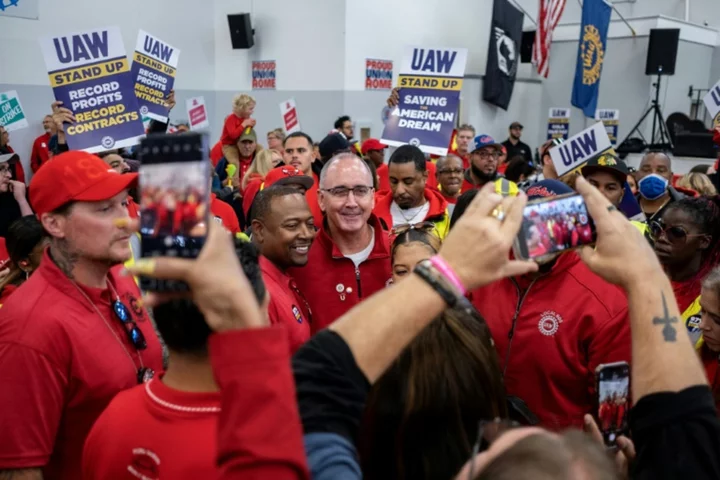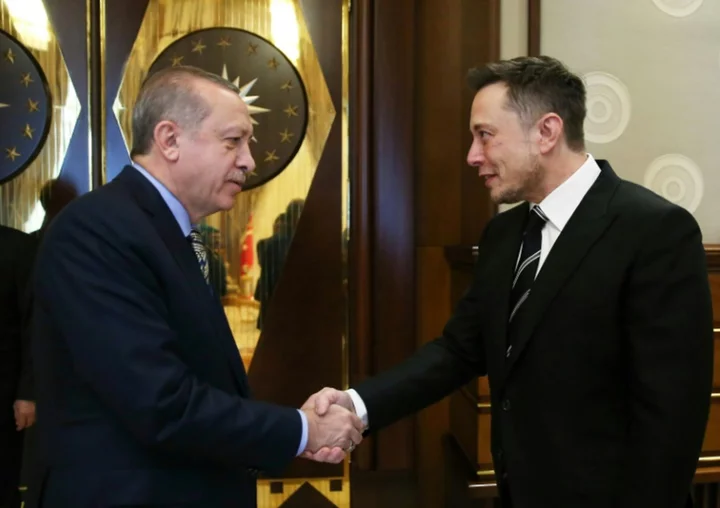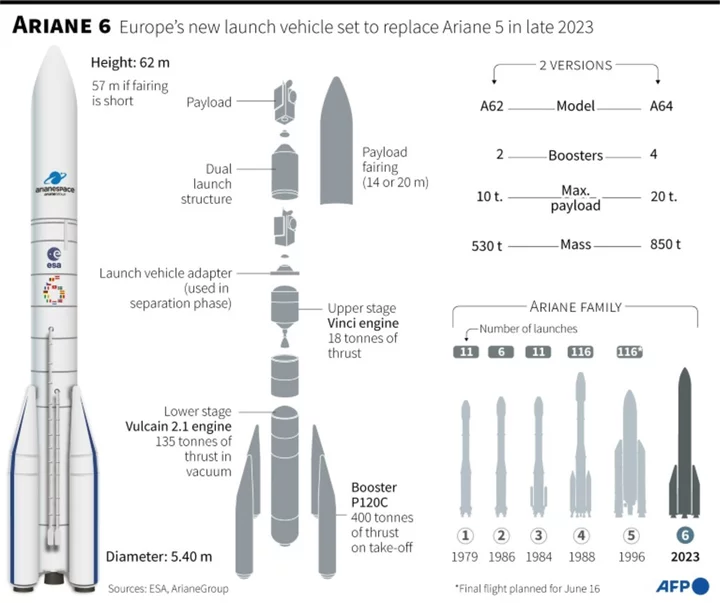The US auto workers union reached a tentative agreement with Ford late Wednesday, a breakthrough in a 41-day stoppage on Detroit's "Big Three" car manufacturers.
The deal, which rank-and-file workers must still approve in a vote, includes a 25 percent wage increase for hourly employees, the United Auto Workers (UAW) union said.
Other key elements include guaranteed cost-of-living adjustments; an elimination of different pay levels or "tiers" that disadvantage junior employees; and a right to strike over plant closures.
"For months we've said that record profits mean record contracts," said UAW President Shawn Fain in a statement. "And UAW family, our Stand Up Strike has delivered."
Ford confirmed the agreement, saying "we are pleased to have reached a tentative agreement on a new labor contract with the UAW covering our US operations."
Also cheering was US President Joe Biden, who hailed an "historic accord," saying "I applaud the UAW and Ford for coming together after a hard fought, good faith negotiation and reaching a historic tentative agreement tonight."
Biden made history in September as the first US president to stand on a picket line as he endorsed the UAW's call for "record" contracts in light of record auto industry profits.
The wage increase in the tentative agreement is somewhat lower than the 40 percent sought by Fain when the UAW launched the strike on September 15 in the first ever simultaneous stoppage of Detroit's Big Three (Ford, General Motors and Stellantis).
However, it is much above the nine percent increase Ford initially proposed in August.
"This agreement sets us on a new path to make things right at Ford, at the Big Three, and across the auto industry," Fain said, while stressing that the final decision rests with members.
"We're going to let that democratic process take its course," said Fain, calling the rank-and-file "the highest authority."
Fain said the ratification process will include detailed online presentations and regional meetings.
After rejecting a tentative agreement struck by UAW negotiators, workers at Mack Trucks voted to go on strike earlier this month.
- Expanding strike -
While the initial UAW strike targeted three plants with just 12,700 workers walking out, the union has gradually expanded the action in the ensuing weeks as it has sought a better deal.
More than 45,000 workers were on strike prior to the Ford deal. The UAW has about 146,000 auto workers in the United States.
In just the last two days, the UAW escalated the strike at both Stellantis and GM, taking down key factories in Michigan and Texas that make some of the companies' most profitable vehicles.
Both GM and Stellantis are currently offering 23 percent wage hikes. Fain has argued the companies need to sweeten the deal further in light of union concessions after bankruptcy reorganizations more than a decade ago.
Following a tentative agreement, labor unions sometimes do not end a strike until the accord is ratified by members.
But in a twist, the UAW said Ford workers would return to their shifts to apply pressure to GM and Stellantis.
"This is a strategic move to get the best deal possible," said UAW Vice President Chuck Browning, adding that "the last thing" GM and Stellantis want is for Ford to get back to full capacity while they mess around and lag behind."
jmb/tjj









